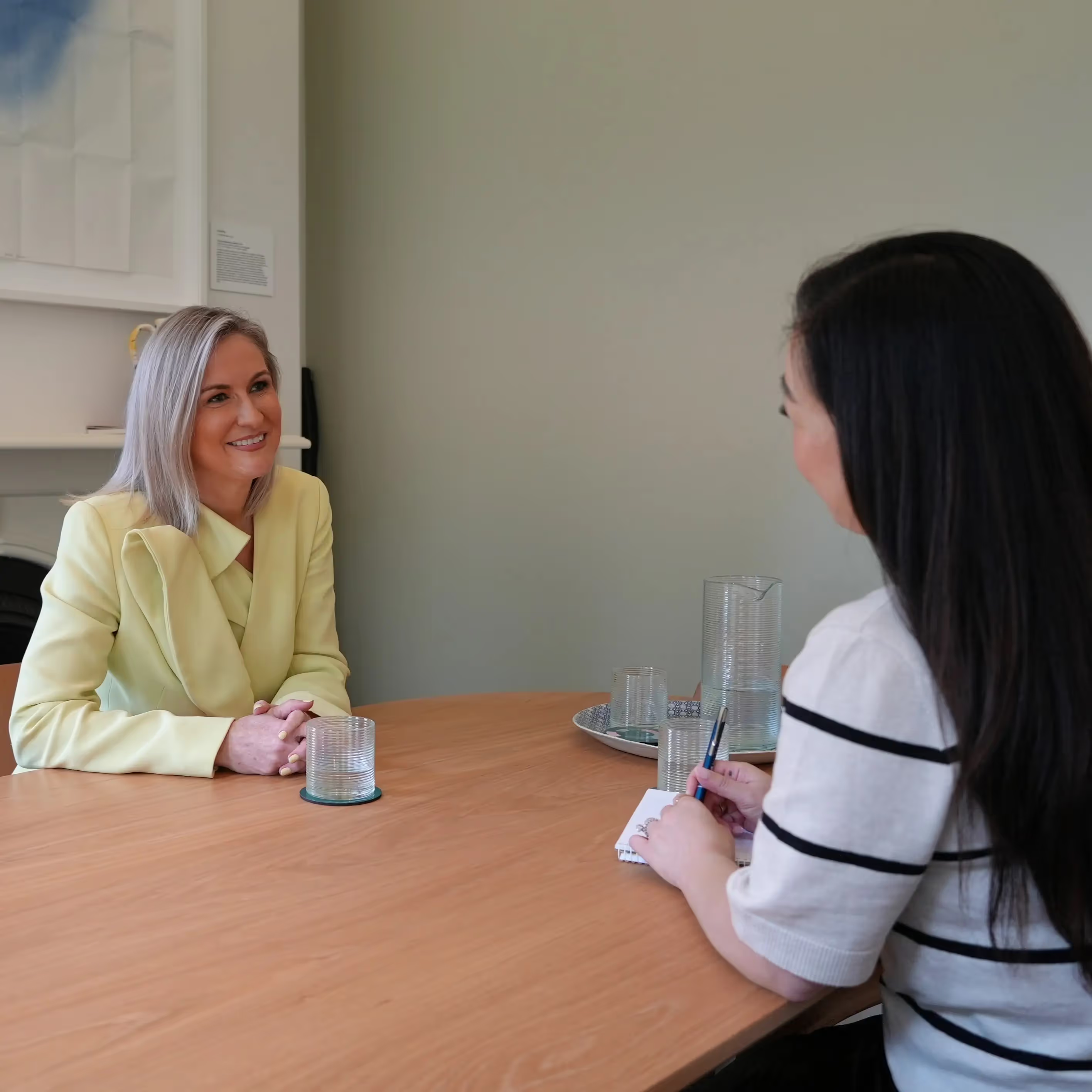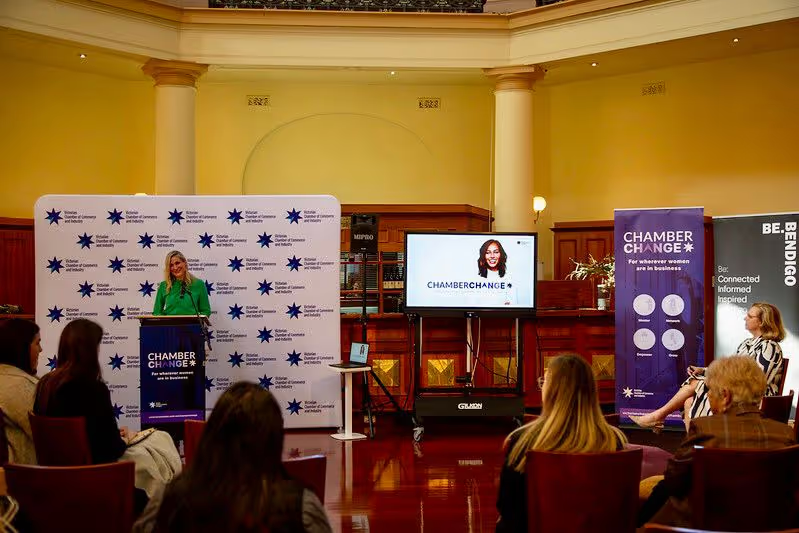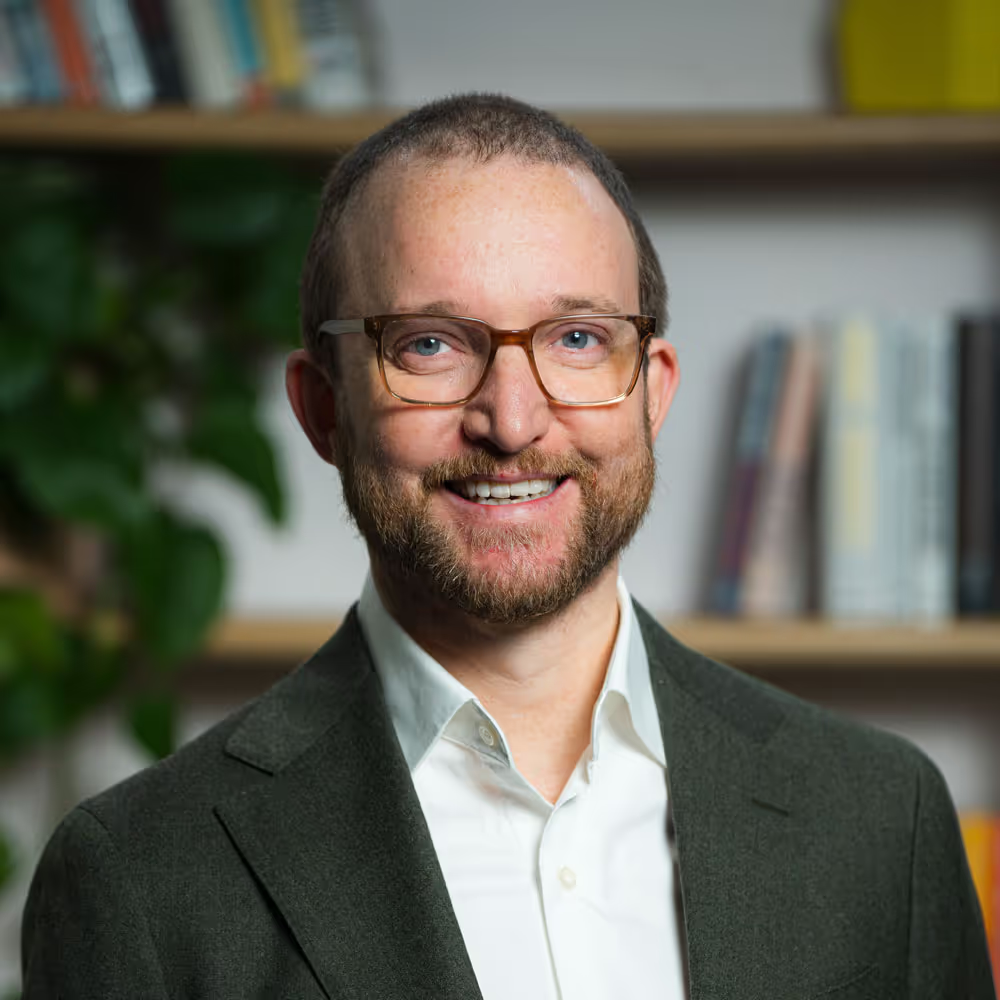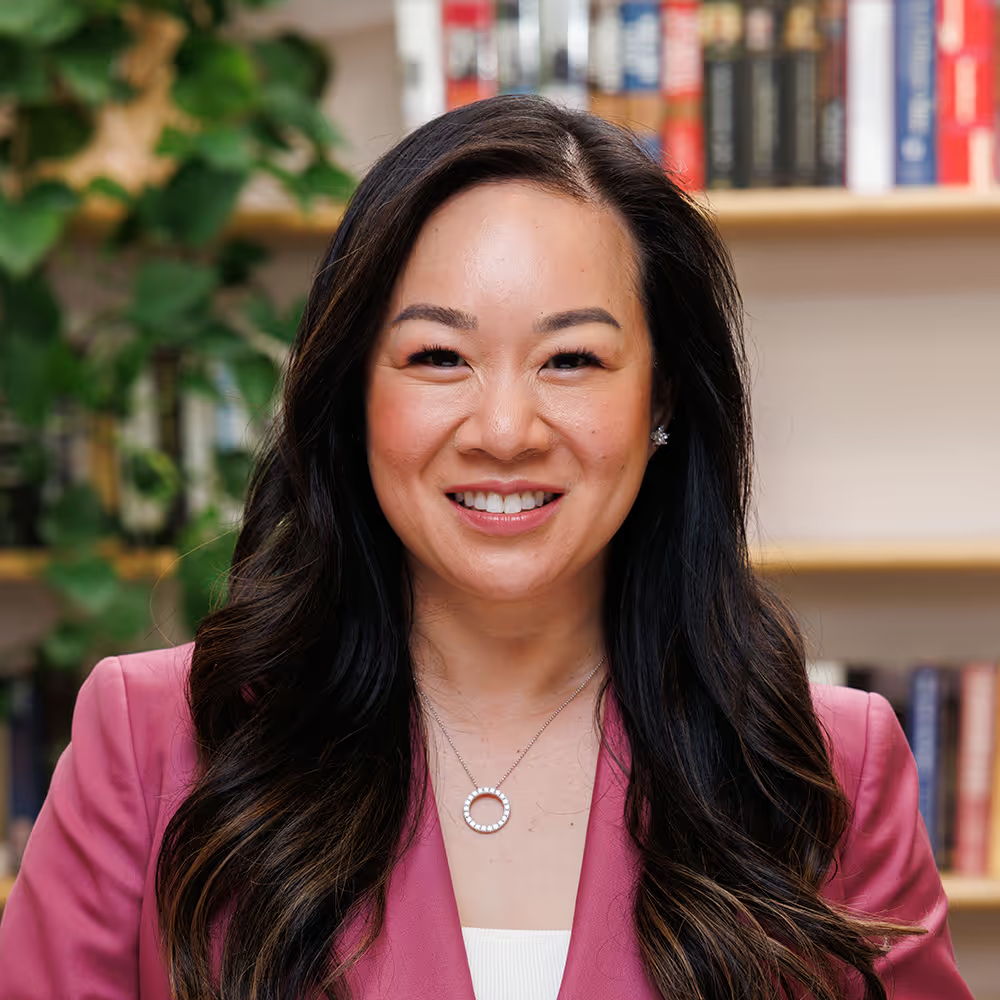An interview with Chanelle Pearson – Chief of Staff, VCCI
16
October
2024
1
min read

In the second edition of the York Park Group Interview Series, we were delighted to sit down with Chanelle Pearson, Chief of Staff to the Chief Executive of the Victorian Chamber of Commerce and Industry.
Chanelle Pearson is Chief of Staff to the Chief Executive of the Victorian Chamber of Commerce and Industry (VCCI). She joined the Chamber in 2020 as Head of Media and Communications, taking on the executive role in 2021. York Park Group Partner, Evelyn Ek, sat down with Chanelle to discuss how she approaches her work, the importance of reputation and the success of the Chamber Change program.

Many people have heard of Chiefs of Staff in the political and media context, but what does your role entail day-to-day at the Chamber?
“I think Chiefs of Staff originated in the military and they’re common in political offices and newsrooms… but they’re becoming more and more prevalent in the corporate world. The role is often described as an air traffic controller, gatekeeper or conduit between a leader of an organisation and the team, external clients, customers and members.
“In my role, I oversee four departments as well as being Chief of Staff. It’s different to a traditional Chief of Staff because I’ve got quite a large portfolio. Primarily, I’m the key strategic advisor to the Chief Executive. My background is media and communications so I’ve got more of that mindset, whereas in other organisations the CEO might want a Chief of Staff who has more of a policy background.
“Every organisation is different and so the role really depends on what the organisation needs, what the leader needs and the Chief of Staff’s skillset.”
How important is it for an organisation and leaders today to focus on building, maintaining and managing reputation?
“Reputation is everything. No consumer is going to use a product if they have a bad reputation; no staff member is going to work somewhere if they’ve got a bad reputation; and the media aren’t going to a spokesperson who isn’t credible or has a bad reputation. Reputation should be – and is – central to everything we do.
“It has to be genuine. It has to be tied back to the mission of the business or organisation – what are their values? What kind of team do they have there? What are they hoping to create?
“If they get all that right and the culture’s right, the reputation will follow. It shouldn’t be the aim, but it should be the product because you’ve created the environment for the reputation to be genuine.”
What do you think are the keys to a successful reputation?
Authenticity. Companies, business or organisations who aren’t authentic: it shows through. You can have flashy marketing or social media campaigns… but it doesn’t work if they’re not authentic to who they actually are.
“Authenticity and accountability. It doesn’t always mean you have to divulge everything, but if you’re not at a point that you can, then say that. Be honest about that.”
Who is a leader you admire or look up to in Australia?
“I have to say Paul (Guerra – Chief Executive of VCCI)! I love working with him – I’d have to say he’s probably the most amazing leader I’ve ever worked with. So down to earth and so driven… and he’s got such a great energy. But, he’s also empathetic. He has built a great network and he is genuine and accountable as well.

“I’d also say – whenever I reflect on this question, it’s hard not to look at people I know – because, it’s fine to admire a leader from afar, but unless I know them I don’t know who they really are. So, I don’t want to say that I admire someone I don’t know.
“That’s why our Chamber Change (VCCI’s women in business program) Champions are leaders who I look up to – they’re amazing women who are crazy busy with a lot on their plate, but they still make time to give back to up-and-coming female leaders. It’s been great getting to know them and learning from them. Just to name a few who I really connect with and look up to: Sally Curtain, Clare McCartin, Julia Swanson and Victoria Loughnan.”
What was the best advice you were ever given … and did you follow it?
“When I was at University and I was head down, working two jobs, my dad used to say: ‘Don’t stress about what you can’t control. You probably won’t even remember this next week’. I still try and tell myself that.
“Sometimes just taking a step back and going: ‘Nope, I can’t control that, it’s done’. My teams will tell you that one of my most common expressions is: ‘No one died’. If something’s gone wrong, we’ll learn from it and get it right next time.
“Just putting things into perspective. It’s something I’ve gotten better at but something I do have to constantly remind myself to do as well.”
You’ve helped establish the Chamber Change program – which provides women in business with the opportunity to mentor, network, empower and grow alongside each other. Why do you think programs like this are so important?
“I just don’t think women in general put themselves out there as much as we could and we don’t have as many opportunities, usually, to network like our male peers do. I know that may sound stereotypical, but I’ve seen it happen in the workplace – women are more likely to be at their desk, wanting to do a good job, getting everything done rather than dedicating some time and energy to create their network.
“When we surveyed our membership to ask what they wanted, around 50 per cent of women said they wanted greater networking opportunities and 70 per cent wanted to see more women in positions of leadership.
“It’s really important to have a great network around you, to have champions, advocates and contacts if you’re wanting to ascend the corporate ladder. That’s why we saw a need for Chamber Change – a program to inspire and empower women to take the next step on their leadership journey.
“It’s been amazing. We’re now up to Program Seven, with 350 female business leaders in Victoria going through it… and we’re just incredibly proud of the results.”

How have you approached your career and what are some of the constant principles you’ve taken across your various roles?
“What I’m doing now is not something I set out deliberately to pursue. I wasn’t much interested in politics or policy at school or university – being a TV journalist was always my ambition, actually. But, I started out my career as a print journalist and then I found myself working in State politics… and I realised I was more passionate about helping to make a difference from a policy, reputation and a public facing perspective, rather than reporting the stories.
“I suppose everything that I’ve done has led me to now and my roles have all been in politics, government and advocacy groups. I’m passionate about helping to shape the narrative and direction around where Victoria is going and where we’d like to see it go.
“I’ve run my own consultancy with a business partner as well and I loved the autonomy and control I had over that: being my own boss and taking on the contracts and projects that we wanted to work on. My husband also runs our third-generation family business which helps me to stay connected and informed about what Victorian businesses are facing every day.”
As a leader and someone who’s very busy, how do you build and maintain important relationships with key stakeholders?
“I’m highly organised and a good multitasker. Obviously, it can be a bit tricky – there’s a lot going on… and I couldn’t do it if I didn’t have the team that I have. It’s so important to have a strong team and to be able to delegate and trust people to do their jobs.
“That’s a really rewarding part of the role as well – seeing people grow their capability. It’s easy to go into ‘control freak mode’ sometimes and do everything yourself, but the more that my teams can do their own thing and support me, then the more I can do externally. There’s a saying: ‘Everyone’s got the same hours in the day as Beyonce’ – it’s how you use them.
“The other thing for me is having boundaries around what I’ll do and what I’ll say yes to. ‘Is it possible to do this?’ or ‘Is it something I can delegate?’ and ‘Where does it sit on the priority list?’. That’s how I decide how I divide my time.”
What do you do in your spare time? How do you switch off?
“I exercise every day. I’m up at 5:30 every weekday morning and the first thing I do is read the papers and other media and then I’ll exercise – whether that’s walking, pilates, yoga or strength, whatever I can fit in, depending where I am.
“I love eating out. Melbourne’s got some amazing restaurants and I love the food and wine scene and spending time with family and friends. I always try and carve out at least some time for recreation, even if it’s just watching TV for an hour at night to unwind.
“And I live for holidays! The best way to recharge and reconnect with my beautiful family.”
10
February
2026

Regional aviation in Australia: The key drivers behind current government reviews
Read news article
10
February
2026

Regional aviation in Australia: The key drivers behind current government reviews
Download White Paper
4
February
2026
.webp)
York Park Group launches transaction communications service
Read news article
4
February
2026
.webp)
York Park Group launches transaction communications service
Download White Paper






